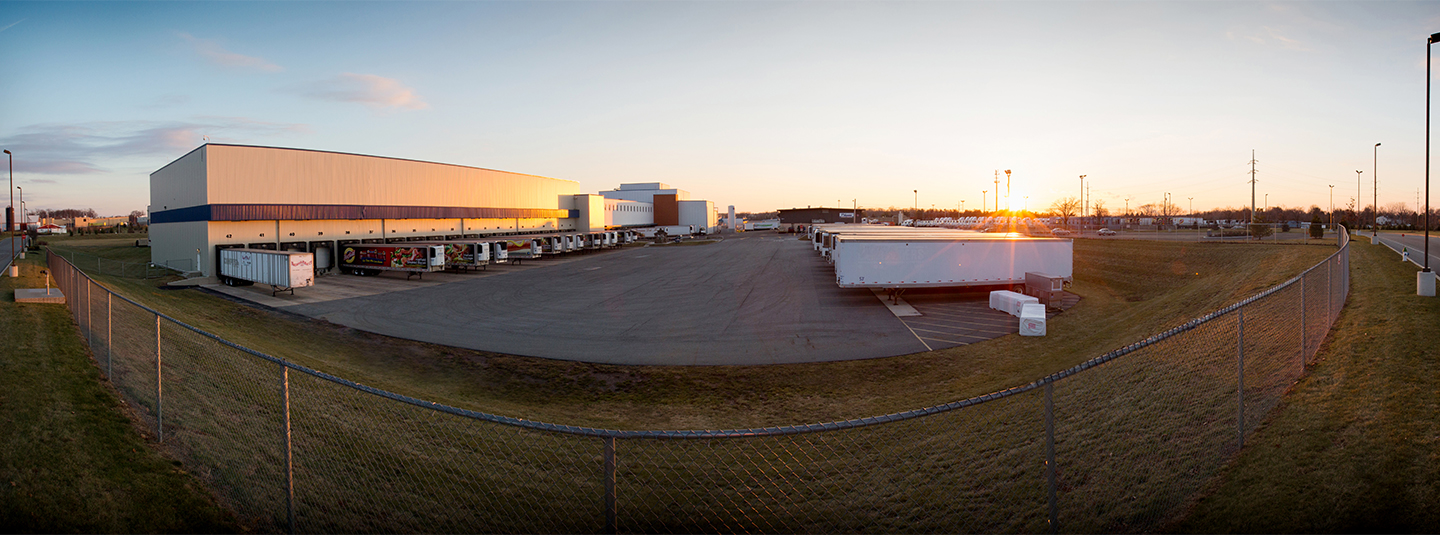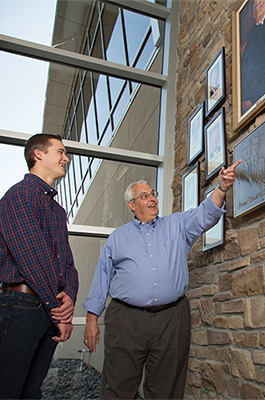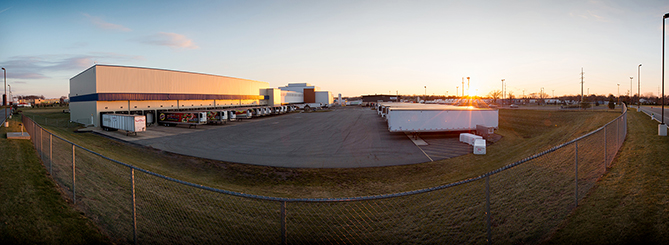Doing it right
The story of a business family

Chairman and CEO Phil Clemens (right) talks to Jacob Clemens about earlier Clemens family members who passed down the business to younger generations. Photography by Lowell Swartley.
The Clemens Family Corporation traces its roots to 1895 when John C. Clemens, Phil’s grandfather, began hauling pork 11 hours one way from his farm in Mainland, Pa., to Philadelphia. After selling the pork, he loaded his wagon with fish and returned home. “His motto was ‘Never an empty wagon,’” says his grandson.
Phil is now chairman and chief executive officer of an enterprise based in Hatfield, Pa., that includes six companies and employs 2,200 people, all based on the original pork processing business. There are now 650 living descendants and 270 of them are shareholders. Fourth and fifth generation family members are part of the business, and a sixth generation is being groomed.
By itself, this is a remarkable story since most family businesses do not last more than three generations. What makes it even more remarkable is that a business built on values remains just as focused on those values today. The values state, “We will:
- Honor God in all we do
- Earn a reputation of high ethics and integrity
- Make sound business investments
- Take a long-term view
- Share success with team members, community and shareholders
- Be good stewards
- Seek to set commercial standards”
Passing along these values is a critical part of the business. “We are very intentional about it,” says Phil. “Values are both caught and taught. A lot of people put their missions and values statements on the wall and make them a marketing tool. We make them operating tools.”
He can rattle off the mission statement at the drop of a hat. “We aspire to operate in a way that honors the Lord Jesus Christ as demonstrated through ethics, integrity and stewardship.”
Putting these values into action shows up in many ways. An example is how the corporation set up a bonus program for its staff. The program pays employees first, then middle management, then senior management if there is anything left. “We operate like an upside down pyramid,” Phil says. “It’s a servant leadership model.”
The Clemens family is intentional about giving back, approaching it in a typically systematic way. Profits are tithed with assets going into a corporate donor advised fund. Individual business units typically use 3 to 4 percent of the money to support local charities and causes in their local areas.
The remainder is directed by a philanthropic committee. John Reininger, Chief Relationship Officer and another family member, chairs the committee, which meets periodically to make decisions about how the money should be distributed. Committee members extend into the fifth generation of the family.
Nurturing both the business and the family is a consistent theme. “We encourage family members to come here to work,” says Phil, “but we like them to work outside the family business for three to five years. We want to be their employer of choice, not the employer of last resort.”

About two dozen family members are active employees today. To keep the pipeline full, the family recently began sponsoring a leadership academy for family members ages 16 to 30. A series of evening classes focused on the history of the family as well as the operation of the business. “We’ve had family members who have come in and changed their college majors because they saw something in the business that attracts them,” says Phil. “Most of the classes are put on by our management people after work. They have thanked us for the opportunity because they want to see the business kept in the family.”
John also recently organized the first “cousin-palooza” for extended family. Fourth and fifth generation family members competed in teams as part of an Iron Chef competition, and second and third generation members came in to share the meal. “We had people here who knew each other and had no idea they were related,” John says.
The idea for cousin-palooza is based on the Old Testament principle of sharing stories. “You link the generations through stories,” he explains.
The concern for nurturing families and businesses extends well beyond the Clemens family. Phil and others in management have worked with family business owners all over the world. “It’s part of our mission,” he says. “How do we help build strong families? How do we help build strong businesses? How much does your faith play a part in this? We often get to share in this way.”
John continues, “The biggest push-back we get is that other families look at us and say we’ve been doing this a long time and we have this very large family. They think it doesn’t apply to them. We tell them that it does. You have to be intentional, whether you have six family members or 600.
“One of the benefits of working with other family businesses is that we learn a heck of a lot.” John continues. “This is really rewarding and motivational. When you share, they share it back and you learn a lot.”
“Being a business family has allowed us to impact family businesses all over the world,” Phil affirms, freshly back from a trip to Rio de Janeiro where he spent time with a number of family business owners. “It’s our mission field, really. We get to share what God has allowed us to do in this business in a very unique way.”
Would John C. Clemens have envisioned what his small company has become? Not likely, says Phil. “I don’t think he ever envisioned the business today,” he says. “Not even close. And I don’t know what it will look like somewhere down the road either. We will suffer hard times, but if we do it right, we’ll be okay.”
Aiming to do the right thing has served the company and the family well ever since the first wagon rolled into Philadelphia in 1895, and it’s still working today.
